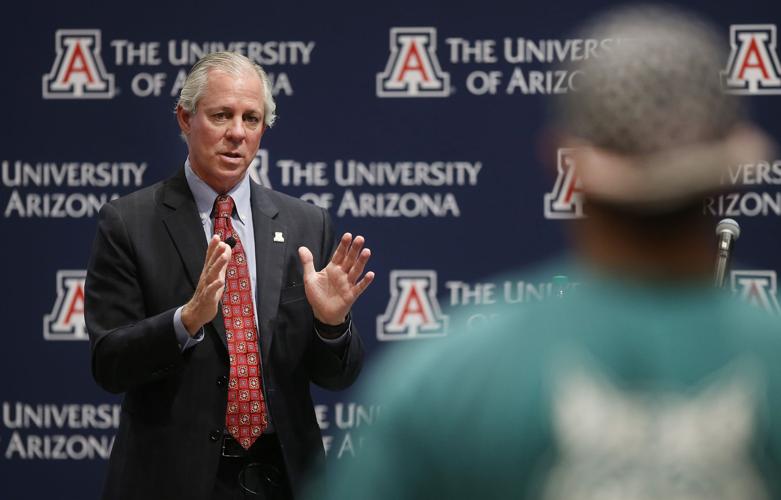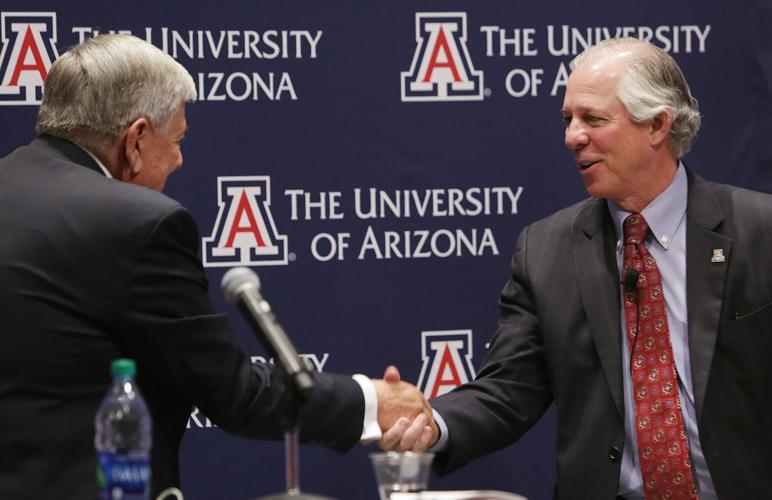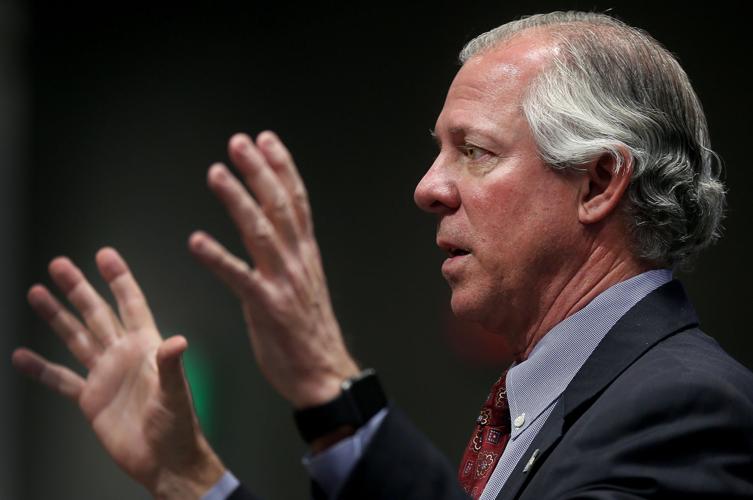The University of Arizona’s presumed next president says he expects to take a hefty financial hit when he’s hired.
And he’s perfectly OK with that — even if he stays on the job, as he hopes to, for the next 10 to 15 years.
“I would be shocked if I don’t take a major pay cut,” said Dr. Robert C. Robbins, who now makes more than $1.2 million as the chief executive of Houston-based Texas Medical Center.
The UA president’s position, for which Robbins is the lone finalist, now pays $670,000, about 50 percent less than his current pay.
“I’ve never been really motivated by money,” said Robbins, 59, who noted he grew up in poverty.
“I’m motivated by the vision and passion I have to return to academia,” he told journalists Wednesday at a news conference.
It marked Robbins’ first official visit to the UA, during which he let it drop that he’s been making “stealth visits” to campus for the last few months.
By donning a baseball cap and posing as an inquisitive parent, he was able to hear directly from students about what the UA does well and where it needs to improve, he said.
“This is a special place with special opportunities,” Robbins told the audience at a public question-and-answer session.
Asked about his vision for the university, he said the Tucson school is ripe for partnerships with major corporations to bring in more research funding and help grow the region’s economy.
The Houston area, where he now works, has drawn investment by Fortune 500 firms such as Apple and Johnson & Johnson since he set up an innovation center that helps entrepreneurs launch new life sciences firms, he said.
“There are a lot of reasons why that could work in Tucson,” he said.
Before the public session, Robbins spent a busy day meeting privately with city and county officials, student groups and UA faculty leaders.
Several of those who met with him said they came away impressed.
“I appreciate that he recognizes there would be no university without students,” said Jude Udeozor, a graduate student of chemistry and president of the UA’s Graduate and Professional Student Council.
“He said he is willing to make himself available to students and student leaders and make sure their concerns are heard in a timely manner.”
Udeozor said Robbins must follow through on that pledge to “gain the trust” of graduate students, a group he said was not asked to provide input during the presidential search.
Steven Schwartz, a professor of chemistry, biochemistry and applied mathematics, said UA faculty as a group were insistent that the next president should be “a real academic, not a business person.”
He said Robbins has a long list of bona fides in that department, having taught cardiology, competed for federal grant money and published numerous scholarly articles while employed at Stanford University Medical Center.
Schwartz, who met twice with Robbins on Wednesday, said he came away feeling optimistic that the Arizona Board of Regents made a good choice.
“I’m sure every president who comes in, people are very optimistic. And then they either end up great or they don’t. So time will tell.”
Robbins “is an extremely impressive person. I have no reason to think he will be anything other than highly successful and we will do everything we can to help him,” he said.
Regents will meet in Phoenix on March 13 to finalize their choice and formally vote to begin contract talks with Robbins. His contract is expected to be voted on in April.






